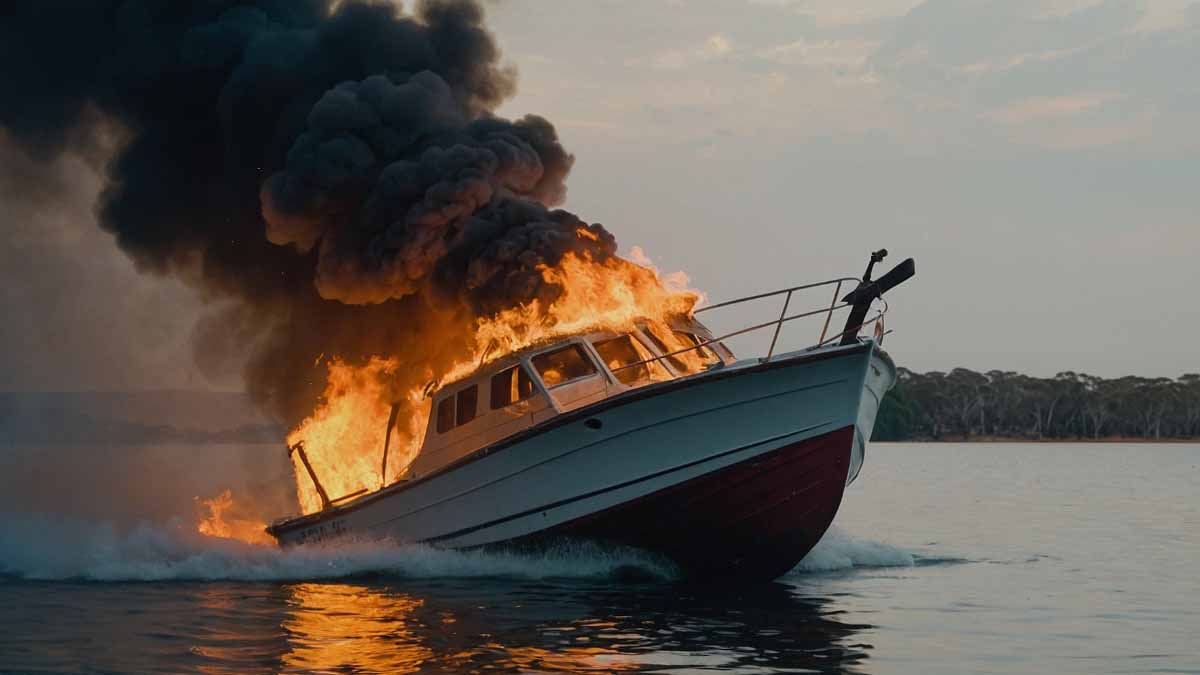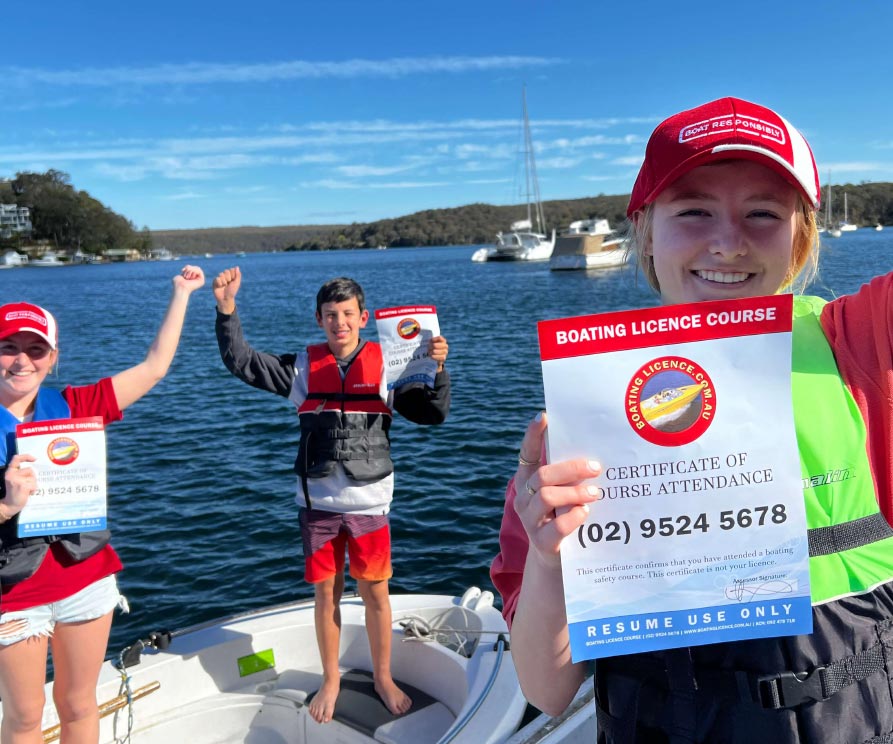Firefighting On The Water – What To Do

Whether your boating around Lake Macquarie, or skiing along the Georges River, hitting the water provides ample opportunity for a thrilling adventure, but with great skippers comes great responsibilities, especially when it comes to safety. One of the most critical skills every skipper should possess is the ability to handle a fire emergency on a boat. In this post, we’ll dive into essential tips and techniques on how to fight a fire on a boat, ensuring you’re well-prepared to protect yourself, your crew/passengers, and your vessel in the face of red-hot danger.
1. Prioritize Prevention
– Regular Maintenance: Ensure your boat is well-maintained, checking electrical systems, engines, and fuel lines routinely to prevent potential fire hazards. Battery sparking from a loose connection? Fuel line cracking?
– Install Fire Safety Equipment: Vessels with enclosed spaces should be equipped with smoke detectors, and all boats should carry fire extinguishers, and fire blankets. Ensure these items are easily accessible and in good working condition. Remember that there are different types of fire extinguishers that are used for different types of fires (oil, wood, petrol, electrical etc) – yes there is a difference, and yes you absolutely should have multiple extinguishers.
2. Stay Calm and Alert
In the event of a fire, it’s crucial to remain calm and think clearly. Panic can lead to poor decision-making, so take a deep breath and focus on the task at hand. Responsible skippers (like the ones that do our course) will already have their emergency plans in place and know exactly what to do and when – do you?
3. Sound the Alarm
– Alert Everyone Onboard: Use a whistle, horn, or loud voice to alert everyone onboard about the fire. Communication is key in ensuring everyone’s safety.
– Call for Help: Use a VHF radio or any available communication device to call for help, providing your location and the nature of the emergency. Remember that in some locations, mobile coverage is spotty at best so your mobile phone might be useless.
4. Isolate the Fire
– Close Hatches and Doors: If it’s safe to do so, close hatches and doors to contain the fire. This helps in restricting the oxygen supply to the flames, slowing down the fire’s spread.
– Turn Off Fuel Sources: Shut off the fuel supply and electrical systems to prevent the fire from being fueled further.
5. Use Fire Extinguishers
– Remember PASS: When using a fire extinguisher, remember the PASS method: Pull the pin, Aim at the base of the fire, Squeeze the handle, and Sweep from side to side. Aim for the base of the flames, not the top.
6. Evacuate Safely
– Wear Lifejackets: Ensure everyone wears lifejackets in case abandoning the boat becomes necessary.
– Use Emergency Equipment: Deploy life rafts, life buoys, or any other available emergency equipment for a safe evacuation.If you’re on open waters >2nm, take your EPIRB. These are waterproof and and they float. Just remember to tie the lanyard to yourself.
– Stay Together: If abandoning ship, stay together as a group to increase visibility and improve the chances of being rescued. You may need to do the Heat Escape Lessening (HELP) or HUDDLE posture, particularly in alpine waters like Lake Burrinjuck.
7. After the Fire
– Seek Medical Attention: Even if injuries seem minor, it’s essential to seek medical attention promptly.
– Report the Incident: Inform the relevant authorities by completing an incident report form. Records of the mistakes some skippers make can end up saving someone in the future. We also incorporate these mistakes and lessons into our course to teach the future boating generation about what and what not to do.
Conclusion:
Fighting a fire on a boat demands quick thinking, preparation, and a calm demeanor. By prioritizing prevention, staying alert, and following the proper procedures, you can increase your chances of effectively handling a fire emergency and ensuring the safety of everyone onboard. Remember, being prepared and knowing how to respond can make all the difference in the world when faced with a challenging situation at sea.

Bonus step: get your licence
Fight fires, not the law – get your licence and become a fire-smart skipper.
Our NSW boat and PWC licence courses are delivered by experienced and accredited trainers who provide in-depth education to not only pass the licence exam, but to also stay safe on the water.
To get your licence, you can book online or reach out to our friendly office team on (02) 9524 5678.